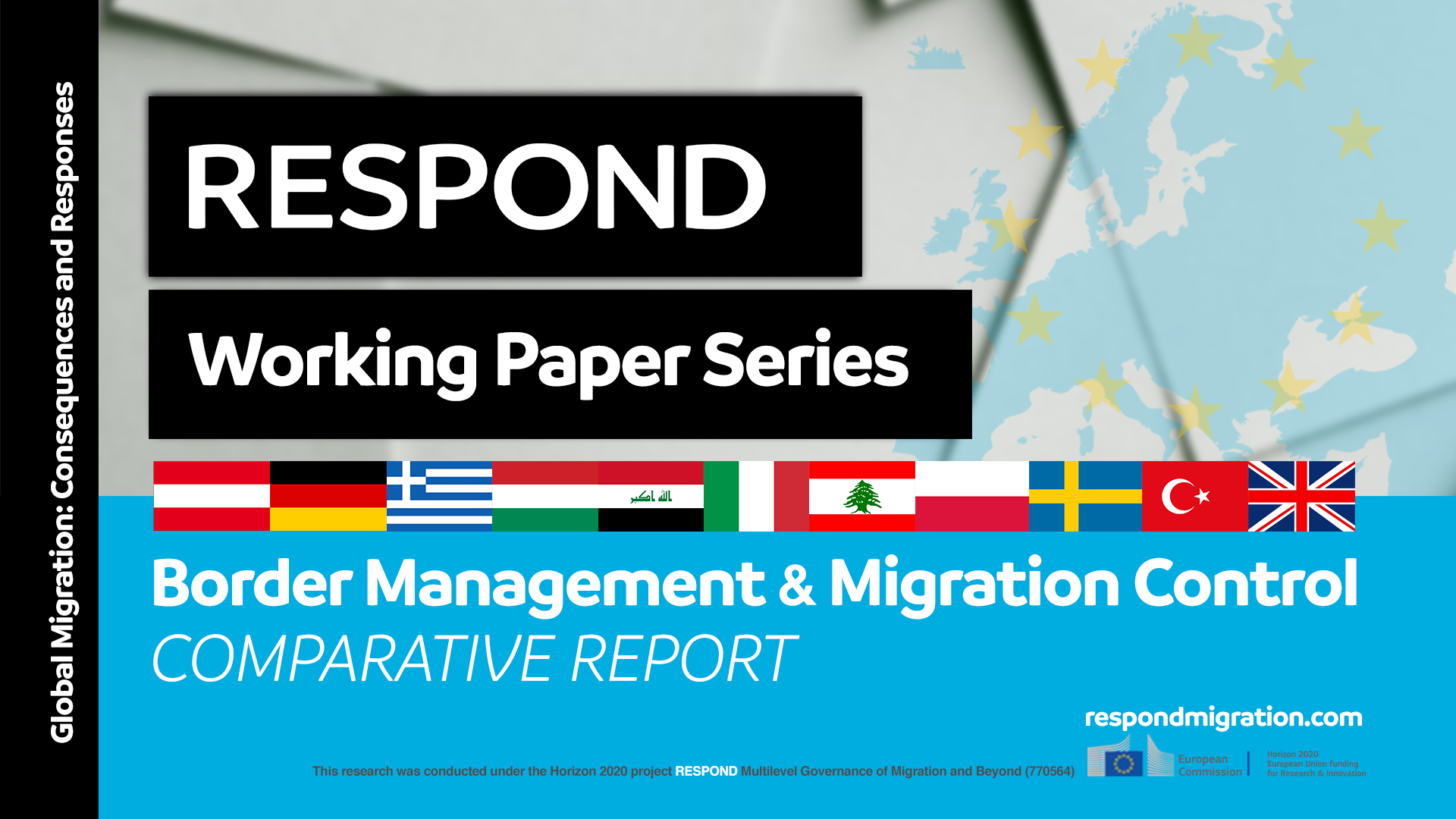Lena Karamanidou - Glasgow Caledonian University | Bernd Kasparek, Sabine Hess - Göttingen University
This report is the part of the WP 2.3 work package of RESPOND, which explores border management and migration controls in the eleven countries selected for the RESPOND project (Austria, Germany, Greece, Hungary, Iraq, Italy, Lebanon, Poland, Sweden, Turkey and the United Kingdom) between 2011 and 2017. The current report provides a comparative analysis of the legal frameworks and policy implementation in these eleven countries, drawing on the national reports submitted as the second deliverable of WP2…
Read More





